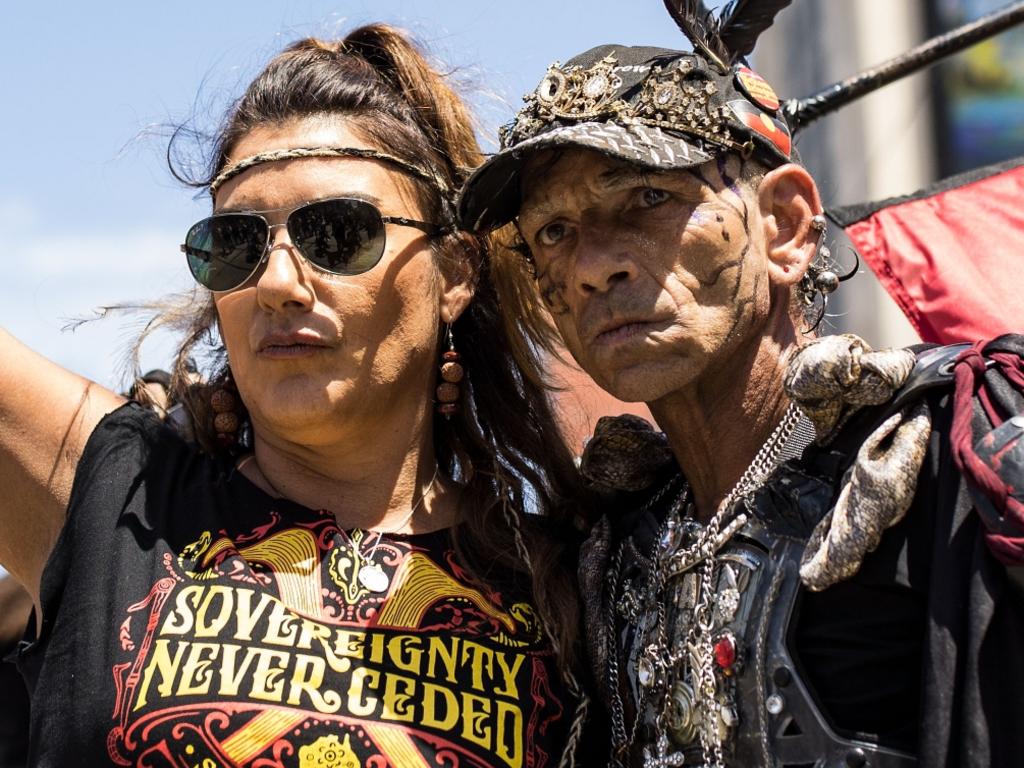
And yes, it’s true that many foreign politicians, Europeans in particular, made snide remarks about us. Until their own immigration problems reversed their views. Britain, for example, is now trying to implement our Pacific Solution in Rwanda. The pariah is now a role model.
The international pariah argument is now getting another run, this time in relation to the proposed voice. While Anthony Albanese was relatively restrained when he said recently that a No vote would be a “bad look”, other voice advocates are already in full-throttle smear mode.
The BBC’s Nick Bryant, for example, wrote in The Sydney Morning Herald before Christmas that “a Yes vote would help quash any lingering vestiges of the stereotype that Australia is a redneck nation. A No vote could be devastating and seen as proof the country is a racial rogue nation”.
Where is Owen Harries when you need him? One of Australia’s greatest intellects would have made mincemeat out of Bryant’s embrace of this foolish sacred cow about “world opinion”. As Harries wrote in 2002, “the truth is there is no such thing as ‘world opinion’. What we have is a variety of contending and shifting opinions, reflecting different values, interests and states of knowledge. To try to elevate one, or some combination, of these to the status of ‘world opinion’ simply represents an attempt to gain advantage on the cheap”.
Harries could have been speaking about Bryant’s fulminations today. They are not merely the kind of childish abuse the voice debate should be free from, but are also factually wrong.
A closer look at our international treaty obligations suggests that we might become an international law-breaker by inserting the Albanese Amendment into our Constitution, because it may well amount to a serious breach of our obligations under the International Convention on the Elimination of All Forms of Racial Discrimination.
Australia is bound by that convention because we ratified it when parliament passed the Racial Discrimination Act in 1975 (unlike the UN Declaration on the Rights of Indigenous Peoples, which we voted against at the UN and have never ratified).
A constitutional voice will no doubt override any breach of the garden variety domestic Racial Discrimination Act. But compliance with domestic law does not relieve us of our continuing international-law obligation to comply with the convention. Insertion of the Albanese Amendment into the Constitution will, for the reasons set out below, violate the convention.
The convention defines the term “racial discrimination” as any “distinction, exclusion, restriction or preference based on race, colour, descent, or national or ethnic origin which has the purpose or effect of nullifying or impairing the recognition, enjoyment or exercise, on an equal footing, of human rights and fundamental freedoms in the political, economic, social, cultural or any other field of public life.” (Emphasis added)

State parties to the convention, including, of course, Australia, are required to prohibit and eliminate racial discrimination and are specifically required “to guarantee the right of everyone, without distinction as to race, colour, or national or ethnic origin, to equality before the law, notably in the enjoyment of the following rights: … (c) political rights, in particular the rights to participate in elections – to vote and to stand for election – on the basis of universal and equal suffrage, to take part in the government as well as in the conduct of public affairs at any level and to have equal access to public service.” (Emphasis added).
Unless a relevant exception applies, inserting the words of the Albanese Amendment into the Constitution would be an act of racial discrimination in breach of the convention because it would confer privileged access to political rights and public service on Indigenous Australians.
In the absence of a relevant exception, Australia would have a continuing obligation under the convention to “amend, rescind or nullify any laws and regulations” including the Albanese Amendment and any laws passed pursuant to it.
So, is there a relevant exception?
There is only one possible candidate for such an exception. The convention does provide that “special measures taken for the sole purpose of securing adequate advancement or certain racial or ethnic groups or individuals requiring such protection as may be necessary in order to ensure such groups or individuals equal enjoyment or exercise of human rights and fundamental freedoms shall not be deemed racial discrimination.”
But here is the proviso: “such measures must not, as a consequence, lead to the maintenance of separate rights for different racial groups and that they shall not be continued after the objectives for which they were taken have been achieved”.
This caveat is critical.
Our Racial Discrimination Act adopts all these terms and concepts, and in the leading case of Gerhardy v Brown in 1985, our High Court gave careful directions as to when a measure will fall within the “special measures” exception.
The case concerned a South Australian Act, the Pitjantjatjara Land Rights Act, which vested certain lands in the Pitjantjatjara peoples to the exclusion of all others (including other Indigenous groups). The court accepted that the act would have amounted to racial discrimination unless it could be brought within the “special measures” exception. Justice (later Chief Justice) Brennan set out four indicia of “special measures”. Relevantly, these included a “sole purpose” test and a “necessity” test.
The Australian Human Rights Commission has published guidelines on these tests which show there must be a degree of specificity about the precise aim of the measures and why the measures are necessary to achieve those aims.
Given that the federal government refuses to give any detail at all about how the voice will work, its specific aims or how it will achieve its aims, it is more than likely the Albanese Amendment would not meet the “sole purpose” or “necessity” tests of “special measures”.
But the killer blow for the Albanese Amendment is the requirement that “special measures” cannot continue permanently, but must be discontinued once the objectives for which they were established have been met.
In the Gerhardy, case the judges were clearly troubled that the relevant South Australian Act had, as Brennan noted, no sunset clause. However, the court accepted that, as Brennan said, the convention did not demand legislation have a specific sunset clause because once the circumstances justifying the special measure ceased to apply, the measure “would fall” because it breached the Racial Discrimination Act. Brennan quoted former chief justice Dixon’s comment that “if a power applies to authorise measures only to meet the facts, the measures cannot outlast the facts as an operative law”.

The problem for the voice then is that the government’s very reason for inserting it in the Constitution, namely to make it permanent, is exactly what the convention forbids, namely a permanent “special measure”. There is abundant evidence that the government’s purpose in inserting the voice in the Constitution, as opposed to merely legislating it, is to put it beyond repeal.
Indigenous Australians Minister Linda Burney stated the official government position in the Sun-Herald on January 22 when she said “by updating the Constitution to include the Aboriginal and Torres Strait Islander voice we will ensure that the voice cannot be abolished” by “future governments”.
While a legislated voice could clearly comply with the convention, a voice enshrined in the Constitution to give it permanence appears to be a pretty clear and obvious breach of the convention.
Ensuring the voice can be abolished by parliament is consistent with the treatment afforded to positive discrimination elsewhere. For example, Justice Sandra Day O’Connor said in the landmark US Supreme Court decision in Grutter v Bollinger, which approved limited and targeted use of racial preferences in US college admission processes, “race conscious admissions policies must be limited in time”.
It’s been a great pity, and a major mistake, then that the Prime Minister, who released the Albanese Amendment in July 2022, chose to outsource legal advice on these critical issues to a group of pro-voice enthusiasts. Had the Albanese government sought its legal advice from the Solicitor-General or more usual government sources, it might have found out that permanently entrenching racial preferences is not only a bad idea but will make us a genuine international pariah for breaking international law.







Many readers will remember the MV Tampa, the declaration by then prime minister John Howard that “we will decide who comes to this country and the circumstances in which they come”, and the resulting claim that our immigration policies would make us an international pariah.